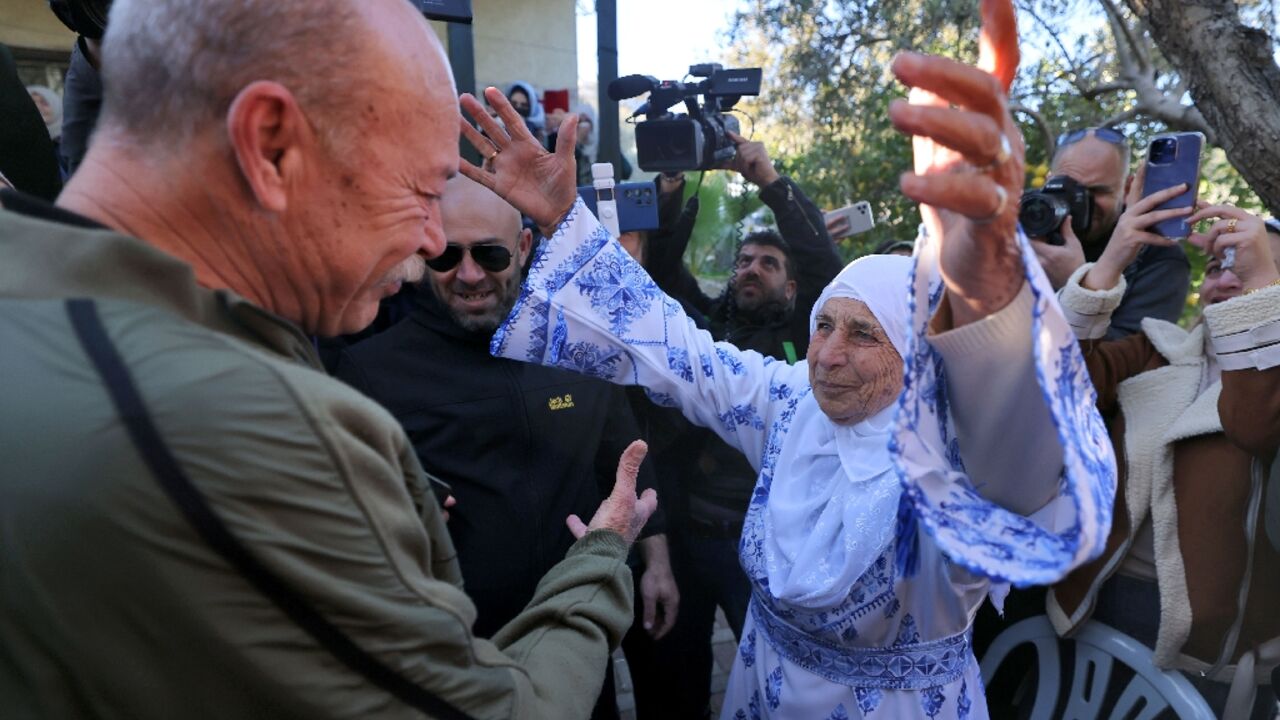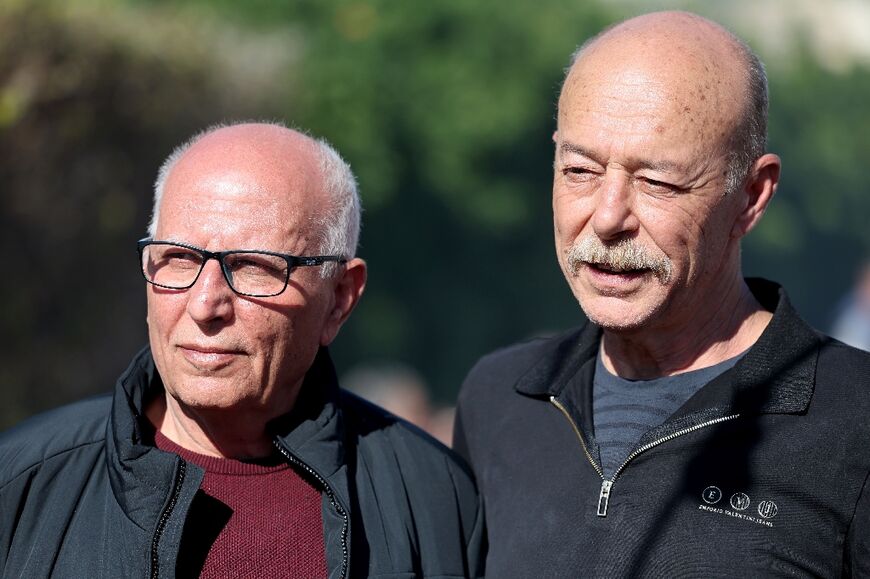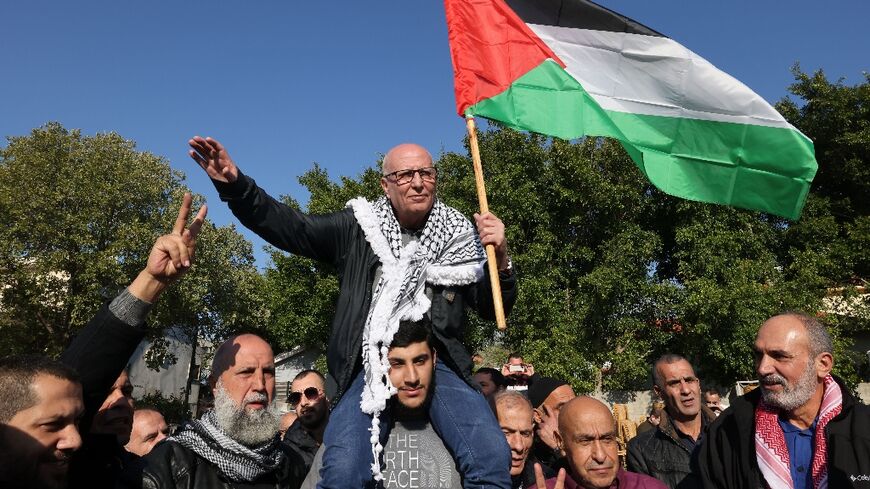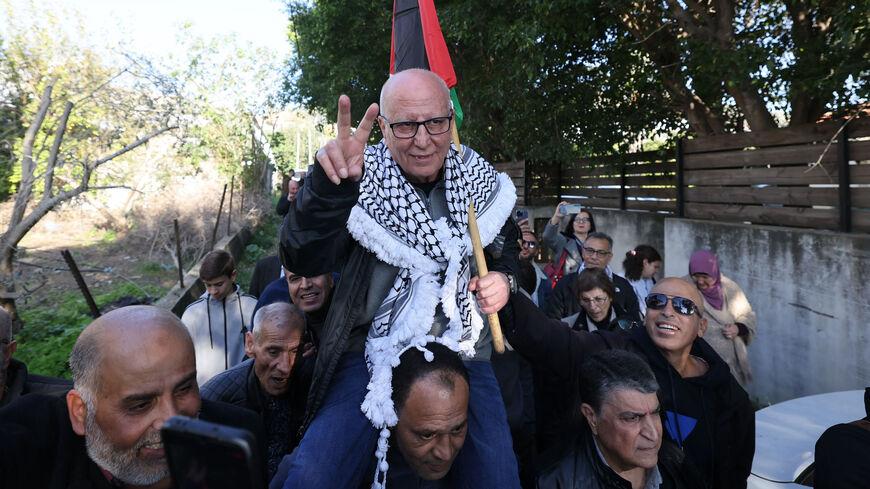Arab-Israeli freed after serving 40 years for killing soldier

An Arab-Israeli jailed for killing an Israeli soldier was released on Thursday after serving 40 years, officials said, with Israel warning it would not tolerate celebrations glorifying "terror".
Maher Younis was released from Beersheba prison in southern Israel shortly after dawn, the Palestinian Prisoners Club said.
Younis was convicted in 1983 of the 1980 murder of Israeli soldier Avraham Bromberg near Hadera in the north of Israel, on his way home from the occupied Golan Heights. His death sentence was commuted to a 40-year jail term.
Hundreds gathered outside Younis' family home in the northern Israeli village of Arara as the 62-year-old returned home, with a young woman in tears as she placed a garland of flowers around Younis' neck.
The celebrations took place despite warnings from Israel's National Security Minister Itamar Ben-Gvir that police would intervene if Palestinian flags or chants supporting Younis took place.
"Waving terror flags and chants that the terrorist is a hero... are illegal measures, so police are instructed to prevent them and if they happen, immediately disperse them," Ben-Gvir said earlier on Thursday.
Though there were no Palestinian flags visible, Younis was defiant.
"The authorities are trying to spoil the celebration," Younis told reporters. "The Palestinian flag is in our hearts and the homeland is in our minds. It is just an issue of appearances."
Younis is a member of Israel's Arab minority, many of whom identify as Palestinians.
"After 40 years of captivity, his health is good and his nerves are solid," his brother Nader Younis said.
His release comes two weeks after his cousin Karim Younis was freed after serving the same prison time for the same offence.
When Karim was released, he said he was "proud" of his actions, and was welcomed by hundreds of celebrating supporters waving Palestinian flags.
The scenes sparked a backlash in Israel, and several high-ranking Palestinian officials from Mahmud Abbas's Fatah party had their Israeli entry permits revoked after attending the celebrations, sparking a diplomatic crisis.
Ben-Gvir's office said the minister had "instructed police to act firmly and with determination against the phenomena of terror and support for terror we saw the other week" during Karim's homecoming.









